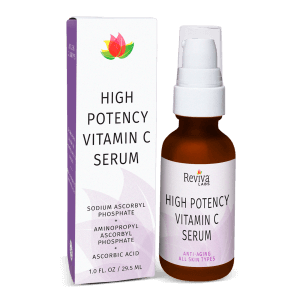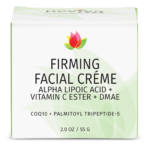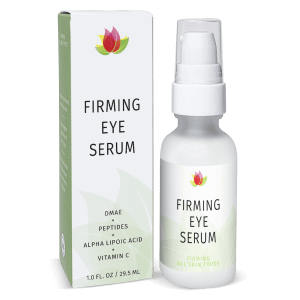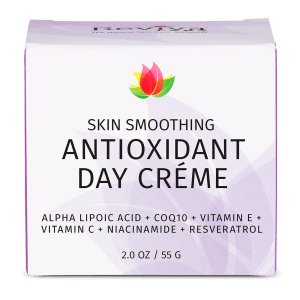Ingredients, Reviva Labs, Skin Care
Is Vitamin C Good for Oily Skin?
Vitamin C, a powerhouse antioxidant, has been a staple in skincare regimens for decades. Known for its brightening and anti-aging properties, it’s no wonder this ingredient is used so frequently in a wide range of skincare products. These products are generally good for all skin types but for those with oily skin, incorporating Vitamin C into a skincare regimen can be a complex topic.
Understanding Vitamin C in Skincare
Vitamin C, a potent antioxidant, is revered in the skincare industry for its ability to fight free radicals, reduce signs of aging, and brighten the skin. Its ability to stimulate collagen production is great for maintaining skin elasticity and firmness. For those concerned about uneven skin tone or dark spots, Vitamin C is renowned for its ability to brighten the skin and reduce hyperpigmentation. This can be especially valuable for those with oily skin, who may struggle with acne scars and uneven skin tone.
The Benefits of Vitamin C for Oily Skin
Regulation of Oil Production
For those battling oily skin, Vitamin C can be a real life changer. Contrary to popular belief, Vitamin C does not increase oiliness. Instead, it can help regulate sebum production. By maintaining the skin’s natural balance, Vitamin C helps to prevent the overproduction of oil. By balancing oil production, Vitamin C can indirectly reduce the likelihood of breakouts. It also promotes collagen production, vital for maintaining skin elasticity and strength.
Combatting Acne and Scarring
Vitamin C’s anti-inflammatory properties make it effective in reducing redness and irritation associated with acne. Additionally, its ability to promote wound healing is beneficial in diminishing the appearance of acne scars, making it a dual-action solution for acne-prone, oily skin.
Brightening and Evening Skin Tone
The brightening effects of Vitamin C are particularly beneficial for oily skin, which is often prone to dullness due to excess oil, a build up of dead skin cells and impurities. Regular use of Vitamin C can lead to a more radiant and even complexion, reducing the appearance of dark spots and hyperpigmentation.
Selecting the Right Form of Vitamin C
It’s essential to choose the right form of Vitamin C for oily skin. Vitamin C comes in various derivatives, and some are more suitable for oily skin than others. For instance, L-ascorbic acid, the purest form of Vitamin C, can be quite potent and may irritate sensitive or oily skin types. In contrast, derivatives like sodium ascorbyl phosphate or ascorbyl palmitate are gentler and can be more appropriate for those with oily skin. Look for products that incorporate these two gentle derivatives as well as ascorbic acid for a triple dose of Vitamin C.
The concentration of Vitamin C in a product also plays a significant role in how well it is absorbed into the skin. While higher concentrations of Vitamin C can provide more potent benefits, they can also increase the risk of irritation. For oily skins, it may be advisable to begin with a lower concentration and monitor how your skin reacts. Gradually increase the frequency and concentration as your skin becomes more accustomed to the ingredient.
Layering Wisely
For oily skin, it’s essential to layer skincare products correctly. After cleansing, apply a Vitamin C serum followed by a lightweight moisturizer. Avoid layering too many products to prevent overwhelming the skin.
Pairing with Sunscreen
Vitamin C can make the skin more sensitive to the sun. Always follow up with a broad-spectrum sunscreen to protect your skin from UV damage.
The journey to incorporating Vitamin C into a skincare routine for oily skin is a delicate balance. While its benefits – regulation of oil production, combatting acne, and brightening the complexion – are enticing, it’s essential to navigate the potential drawbacks carefully. Choosing the right formulation, starting slowly, and being mindful of layering can lead to a successful and rewarding experience with Vitamin C skincare. With these considerations in mind, Vitamin C can indeed be a valuable addition to the skincare arsenal of those with oily skin.










